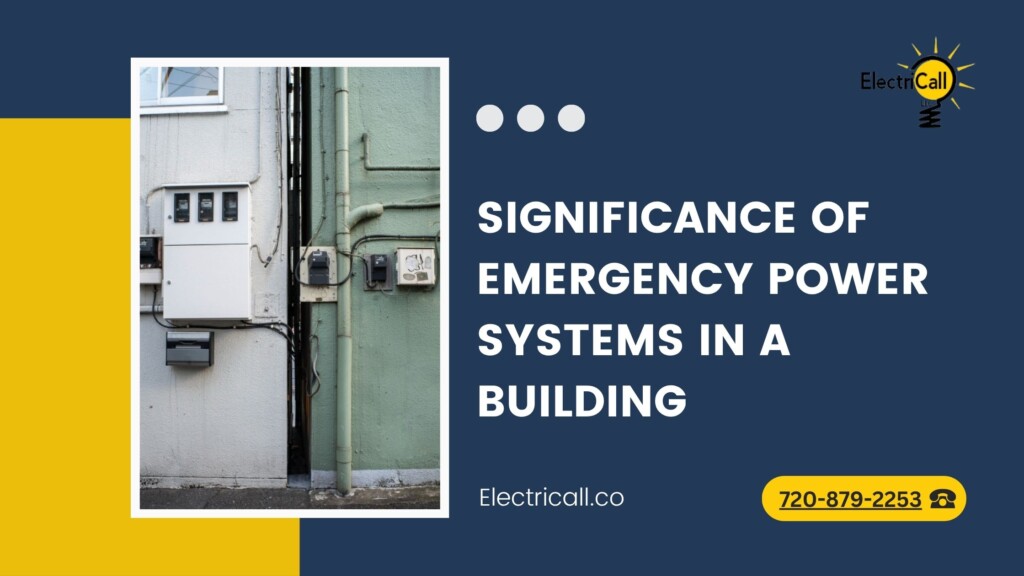
Your home’s electrical system, whether connected to the grid or not, is susceptible to the effects of weather change. Depending on the weather, the damage can either be sudden or occur through attrition. Now, add in the fact that Colorado’s weather can change on a dime, and you have pretty good reason to weatherize your home’s electrical system or have an electrical contractor do it for you.
Although Colorado isn’t particularly vulnerable to major natural disasters like earthquakes, hurricanes, and floods, sudden weather changes, harsh winters, and scorching summers can still bring costly damages.
So, here are some ways you can get ahead of these problems in your home and avoid power disruptions and costly repairs.
Summer
With over 300 summer days, Denver, Colorado residents enjoy more hours of sunshine annually than people in Miami or San Diego. However, the heat can sometimes reach levels well over 100 degrees. Summer heat usually strains power plants, increasing the prospects of rolling blackouts. As any Arvada licensed electrician will tell you, temperatures hot enough to strain industrial power plants can damage electrical systems.
Here are some ways the summer heat can affect your electrical system:
- Heat waves increase the demand for electricity as the need for air conditioning increases in homes and commercial buildings.
- Power lines, cables, and switches tend to heat up and expand when there is greater demand for electricity and hot temperatures. The expansion of these components can cause connection problems and short circuits.
- The expansion of cables can cause lines to violate minimum clearance requirements between the line and any obstacles. Denver’s sudden temperature changes can exacerbate this problem and lead to permanent changes in cable length, a phenomenon called the “creep effect.”
You can mitigate the effects of hot weather on your electrical system by having it regularly maintained and inspected by a licensed Denver electrician. You can also insulate your home or work building to reduce the strain on your air conditioning, electrical system, and energy costs.
In case you missed it: 5 Tips to Save on Your Summer Electric Bill
Winter
Unlike the summer, Denver winters are short and surprisingly warm and sunny, with snow falling once or twice a week. However, like the summer, winter temperatures and weather changes can happen fast. A clear day can turn snowy, and while it doesn’t snow a lot when it does, it often settles several inches high. Heavy snow can also turn into snowstorms and blizzards, which can wreak havoc on electrical grids and systems.
It’s no secret that winter storms can lead to prolonged power outages, as powerful winds and the weight of snow can cause trees to fall on power poles and wires, and excessive use of electricity for heating in winter can also cause power outages as electrical systems are overloaded.
When a home’s electrical system remains under constant stress for a long time, it can result in tripping breakers. Additionally, low temperatures can cause wiring and electrical components to contract, potentially leading to cracks and damage. If moisture from rain, snow, or ice seeps into these cracks, it can lead to short circuits.
One of the best ways to prevent or minimize electrical issues in your home or work building during winter is by minimizing electrical strain on your system. You do this by:
- Investing in energy-efficient bulbs.
- Unplugging unused appliances.
- Turning down the thermostat.
- Replacing old and outdated appliances and equipment.
Remember to trim trees near your home’s power lines or electrical components. Investing in a backup generator is essential in reducing the effects of power outages in winter. To better prepare your electrical system for the Denver winter, you can get a residential electrician to inspect your home before the snow falls.
Recommended for you: 8 Must-Know Electrical Tips For Winter
Fall and Spring
Denver spring and fall are even shorter than winter but are subject to rapidly changeable weather patterns. Spring brings lots of sunshine, but residents expect a day or two of heavy snow or rain. Mid- and late spring can also bring strong hail and winds, which can cause significant damage to electrical systems and components.
Since Colorado’s hailstorms rank among the most active in the country, it’s important to take safety measures to protect your system. If you have a solar power system, the best way to protect it from hail is to add a protective cover.
You can also ask your Arvada electrician which hail-resistant panel best fits your building. This will help avoid expensive unforeseen repairs in the future.
Stay Ahead Of Weather-related Electrical Issues With A Trusted Denver Electrician
Although we cannot control the weather, we can control how and to what extent it affects our lives. Hopefully, this article will help you prepare your electrical system for the changing seasons and erratic Denver weather.
Trusted electricians in Denver, CO, are ready to help ensure your safety and comfort all year round through routine maintenance and inspection of your electrical system. Find electrical contractors near you today.



